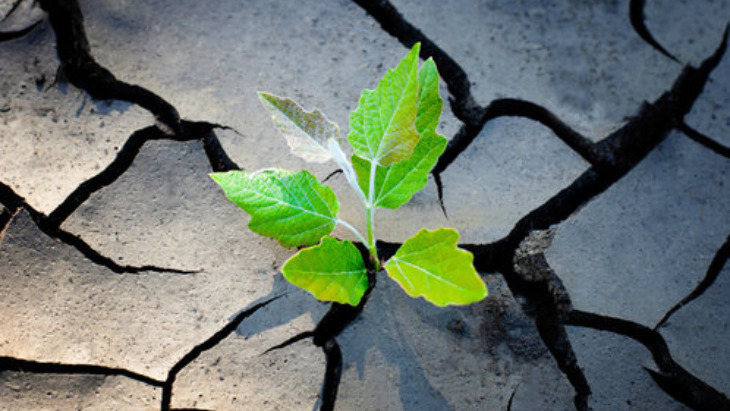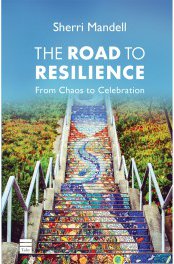 Raise a Glass to Freedom
Raise a Glass to Freedom


5 min read
After the murder of our son Koby I have been shattered -- and I have been rebuilt.
The Jewish people are masters of resilience. Yet most people misunderstand the nature of resilience. The Latin source of the word is to leap back, but when you are struck with crisis or trauma or tragedy, you can’t return to who you were.
In Hebrew the word designating resilience, chosen, means to be inoculated, impermeable. But neither of these terms describe the Jewish concept of resilience. Judaism teaches us that we always need to become greater, bigger, better. You have to expand in order to be able to contain the new you, shattered though you may feel.
Resilience is about becoming, not overcoming. When you face a trauma you are in danger of breaking apart; you may even fear that you will lose your mind. Yet that same sense of vulnerability and fracture can lead you toward connecting to something greater than yourself, connecting to others and to the divine.
Unfortunately, I am an expert in this process. Our son Koby was murdered by Palestinian terrorists in 2001 when he was 13, and since then I have been shattered – and I have been rebuilt.
My husband and I created the Koby Mandell Foundation which runs Camp Koby and programs for bereaved children. We have met thousands of bereaved families. I also trained to be a pastoral counselor and worked on the cancer ward of a hospital as well as with patients in persistent vegetative states, and with their families. I have witnessed resilience.
Resilience is not a personal quality that a few lucky ones possess. Instead each of us can build resilience. Here are the seven suggested spiritual steps of resilience.
1. Chaos. Most people are terrified of this state. But if you don’t enter you may never leave the pain behind. The word chaos in Hebrew refers to tohu, the state of desolation and emptiness accompanying the creation of the world. But Rashi’s comment on the word for chaos in the creation story tells us that a person would be astonished and amazed at witnessing the void at the center of the world. Even in the chaos there is a sense of astonishment. You can’t see it now but there is wonder waiting for you.
2. Community. You can’t handle this alone. We are responsible for one another. Resilience is the ability to receive the kindness that others will give you, to let other people in. One of the wonders of Jewish life is the strength and power of community. The word for community in Hebrew includes the word “other.” In Jewish life, the community is responsible for the person who suffers.
3. Choice. The world is predicated on free choice. One of the first things that God offered Adam was the choice of eating from the tree of knowledge. He was the one who decided. You have the possibility of making choices that will bring you comfort. The biggest choice may be to allow what has happened to you bring you closer to God.
4. Creativity. God is the master of creativity and we can translate our pain into creativity, into renewal. We can find coherence even when it doesn’t seem like there is any. The Koby Mandell Foundation runs mosaics classes for bereaved mothers and our teacher tells us: “There are no mistakes in mosaics. You can always find a design to include and incorporate flaws. And that revised design may be more original and beautiful.” You may also create a new self, one who is more courageous and compassionate.
5. Commemoration. We often repress or deny difficult experience. But Judaism is all about remembering. When we remember our personal and collective histories, we learn from the past in order to inform the present. In fact, research has found that children who know their family stories are more resilient than other children. Our knowledge of the Jewish national story may in fact contribute to the national resilience of the Jewish people.
6. Consecration. The very thing that could have destroyed you has now been transformed to a sense of mission in your life. Each suffering has a message to disclose. That message will tell you what action you need to take to heal your corner of the world. “The stone the builders discarded has become the cornerstone” (Psalm 118). In this way, resilience is not a process of closure, but disclosure.
7. Celebration. In finding your mission, transforming (in Rabbi Soloveitchik’s words), fate to destiny, you experience an expanded sense of self. And in that expansion, there is celebration.
 Resilience is connected to the word for silence and also the word for salience. What silenced you, what felt beyond language, now propels you to find salience: a heightened sense of meaning and significance, a deeper conversation with God.
Resilience is connected to the word for silence and also the word for salience. What silenced you, what felt beyond language, now propels you to find salience: a heightened sense of meaning and significance, a deeper conversation with God.
Sherri Mandell is the author of The Road to Resilience and The Blessing of a Broken Heart. You can buy her books on Amazon or from korenpub.com.
